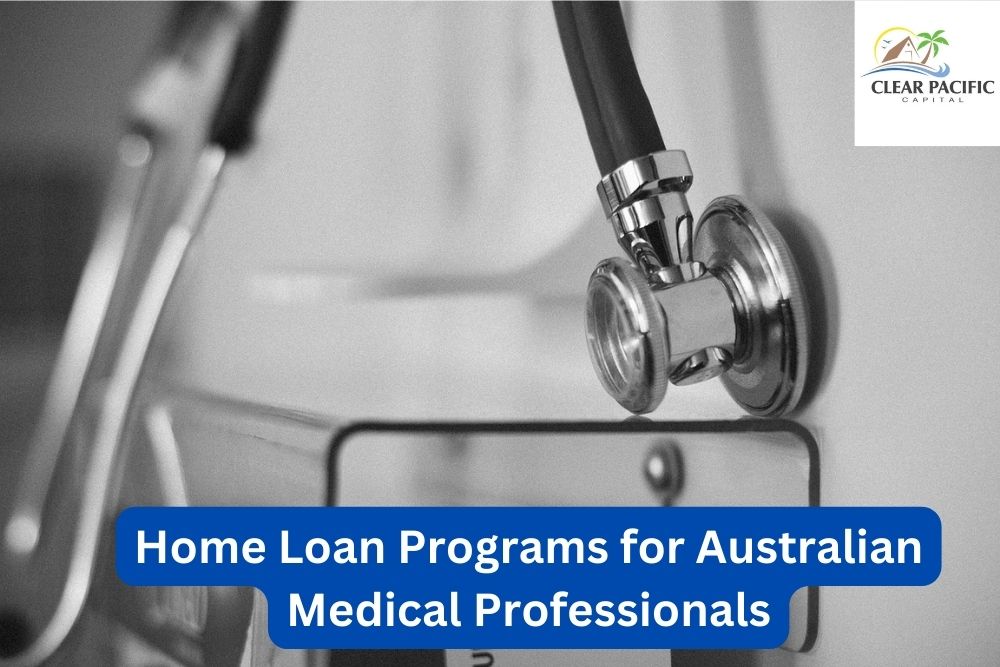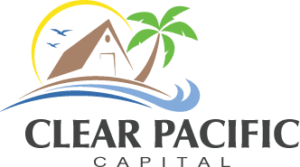Purchasing a home is a significant milestone in anyone’s life, but for medical professionals in Australia, it can come with unique challenges. The importance of doctor home loans cannot be overstated, as they play a pivotal role in helping doctors achieve their dream of homeownership. These specialized mortgage options are designed to address the specific financial needs of medical practitioners, making it easier for them to buy a home while managing the demands of their profession.
Key Takeaways
- Doctor Home Loans Eligibility: Doctor home loans are not exclusive to medical doctors but often extend to various healthcare professionals, including dentists and veterinarians.
- Refinancing with Doctor Home Loans: Yes, you can use doctor home loans for refinancing, which can lead to lower interest rates, debt consolidation, and even cash-out refinancing.
- Risks of Doctor Home Loans: While they offer benefits, doctor home loans can come with higher interest rates for some professions, limited lender options, and potential for negative amortization, so careful evaluation is crucial.
Understanding Doctor Home Loans
A. Definition of Doctor Home Loans
Doctor home loans, also known as physician home loans, are specialized mortgage programs designed to cater to the unique financial circumstances of medical professionals, including doctors, dentists, and sometimes even veterinarians. These mortgage options recognize the financial challenges that doctors often face due to their significant student loan debt and irregular income patterns.
Key Features of Doctor Home Loans:
- Tailored for Medical Professionals: These loans are tailored to the specific needs of medical practitioners, acknowledging their potential for high earnings but also the financial strain imposed by their educational loans.
- Flexible Terms: Doctor home loans typically offer more flexible terms than traditional mortgages. This includes lower down payments, competitive interest rates, and no private mortgage insurance (PMI) requirements.
- Streamlined Application Process: Lenders who specialize in doctor home loans understand the unique financial situations of medical professionals and streamline the application process accordingly.
B. Eligibility Criteria
To benefit from doctor home loans, you need to meet certain eligibility criteria. Here are the key factors to consider:
1. Qualifying Professions
Doctor home loans are not limited to medical doctors alone. They are often extended to a range of medical professionals, including:
- Medical Doctors: This category includes general practitioners, specialists, and surgeons.
- Dentists: Whether you’re a general dentist or a specialist, you may qualify for these loans.
- Veterinarians: In some cases, veterinarians may also be eligible.
- Medical Residents and Fellows: Even if you’re still in the early stages of your medical career, you can explore these mortgage options.
2. Income Requirements
Lenders offering doctor home loans understand that medical professionals may have different income patterns due to various factors. While the specific income requirements can vary from lender to lender, many of them are more accommodating compared to traditional mortgages. To be eligible, you typically need to provide:
- Proof of Income: This may include tax returns, pay stubs, or employment contracts. Lenders usually consider your base salary, bonuses, and any additional sources of income.
- Future Earnings: For medical residents or fellows, some lenders may consider your expected future income when assessing your eligibility. This can be particularly beneficial for those who anticipate a significant increase in earnings after completing their training.
3. Credit Score Considerations
Your credit score is a critical factor in your eligibility for doctor home loans. While the exact credit score requirements can vary, a good credit score will improve your chances of approval. Here’s what you need to know:
- Credit Score Range: Different lenders may have varying credit score requirements. Typically, a credit score of 700 or higher is considered favourable. However, some lenders may be more lenient, especially if you have a strong income and minimal debt.
- Credit History: In addition to your credit score, lenders will also assess your credit history. A clean credit history with no major red flags, like bankruptcies or foreclosures, is usually preferred.
- Credit Score Improvement: If your credit score falls below the desired range, you can take steps to improve it. This may include reducing outstanding debt, making timely payments, and checking your credit report for any errors.
Understanding these eligibility criteria is crucial when considering doctor home loans. While the requirements may seem stringent, many lenders specializing in these mortgages are more accommodating to medical professionals due to the unique financial challenges they face. It’s advisable to shop around and compare offerings from different lenders to find the best fit for your specific situation.
Now, let’s summarize the key points in a table:
Eligibility Criteria for Doctor Home Loans
| Eligibility Criteria | Details |
|---|---|
| Qualifying Professions | – Medical Doctors – Dentists – Veterinarians – Medical Residents and Fellows |
| Income Requirements | – Proof of income – Future earnings (for residents and fellows) |
| Credit Score Considerations | – Credit score range – Credit history – Credit score improvement |
Understanding these criteria will help you determine if you qualify for doctor home loans and what steps you may need to take to meet these requirements.
Benefits of Doctor Home Loans
A. Lower Down Payments
One of the standout advantages of doctor home loans is the ability to make lower down payments compared to traditional mortgages. This is particularly beneficial for medical professionals who may have substantial student loan debt and are eager to minimize their upfront expenses when buying a home.
Key Points on Lower Down Payments:
- Typically 0% to 5% Down: Doctor home loans often require down payments in the range of 0% to 5% of the home’s purchase price. This is significantly lower than the 20% down payment commonly associated with conventional mortgages.
- Conserving Cash: By allowing for smaller down payments, these loans enable doctors to preserve their cash for other financial needs, such as paying off student loans, setting up a medical practice, or making home improvements.
- Accelerated Homeownership: Lower down payments make homeownership more attainable and quicker, allowing medical professionals to establish equity in their homes without depleting their savings.
B. Competitive Interest Rates
Another appealing aspect of doctor home loans is the availability of competitive interest rates. These rates are often more favorable compared to conventional mortgage rates, providing significant long-term savings.
Key Points on Competitive Interest Rates:
- Interest Rate Discounts: Many lenders who offer doctor home loans provide interest rate discounts, which can result in lower monthly mortgage payments and reduced overall interest costs.
- Fixed and Variable Rates: Borrowers can typically choose between fixed and variable interest rates, giving them flexibility in selecting a rate structure that aligns with their financial goals.
- Savings Over Time: Lower interest rates not only lead to immediate savings but also translate to more affordable homeownership over the life of the loan.
C. No Private Mortgage Insurance (PMI)
One of the most attractive features of doctor home loans is the exemption from Private Mortgage Insurance (PMI). PMI is typically required when borrowers make down payments below 20% on a conventional mortgage. Doctor home loans remove this additional expense.
Key Points on No PMI:
- Cost Savings: By eliminating the need for PMI, doctor home loans save borrowers money. PMI can add a significant cost to monthly mortgage payments.
- Immediate Equity Building: Without PMI, doctors can begin building equity in their homes from the start, as opposed to paying extra for insurance.
- Reduced Barrier to Entry: The absence of PMI makes homeownership even more accessible for medical professionals, especially for those with limited down payment resources.
D. Flexible Debt-to-Income Ratios
Doctor home loans recognize the unique financial circumstances of medical professionals, including their potential for high income and student loan debt. As a result, these loans often come with more flexible debt-to-income (DTI) ratio requirements.
Key Points on Flexible DTI Ratios:
- High DTI Tolerance: Lenders who specialize in doctor home loans are often more accommodating when it comes to higher DTI ratios. This is especially beneficial for doctors who may have substantial student loan debt.
- Consideration of Future Earnings: For medical residents and fellows, some lenders may take into account their expected future income when evaluating their DTI. This can make it easier for these professionals to qualify for the loan.
- Tailored to Medical Professionals: Doctor home loans are designed to reflect the financial profile of medical practitioners, providing the flexibility needed to accommodate their unique circumstances.
Let’s summarize these benefits in a table:
Benefits of Doctor Home Loans
| Benefits | Details |
|---|---|
| Lower Down Payments | – Typically 0% to 5% down – Preserves cash – Accelerates homeownership |
| Competitive Interest Rates | – Interest rate discounts – Fixed and variable rate options – Long-term savings |
| No Private Mortgage Insurance (PMI) | – Cost savings – Immediate equity building – Reduced barrier to entry |
| Flexible Debt-to-Income Ratios | – High DTI tolerance – Consideration of future earnings – Tailored to medical professionals |
Understanding these benefits is essential for medical professionals considering doctor home loans as a means to achieve their homeownership goals. These advantages can significantly ease the path to owning a home while practicing medicine in Australia.
How to Apply for Doctor Home Loans
A. Finding Lenders Specializing in Doctor Home Loans
To begin your journey towards securing a doctor home loan, it’s essential to find lenders who specialize in these unique mortgage programs. Here’s how you can identify such lenders:

1. Research Online:
- Start by conducting online research. Look for lenders in Australia who explicitly offer doctor home loans. Many of these lenders have informative websites that provide details on their loan offerings.
2. Ask Your Professional Network:
- Reach out to colleagues in the medical field or those who have recently purchased homes. They might have valuable insights into lenders who are experienced in working with medical professionals.
3. Consult a Mortgage Broker:
- Mortgage brokers have access to a wide network of lenders and can connect you with those offering doctor home loans. They can streamline the process by presenting you with multiple options.
4. Check with Medical Associations:
- Some medical associations in Australia may have partnerships with lenders offering special financing for their members. Check with your association for any recommended lenders.
5. Read Reviews and Testimonials:
- Online reviews and testimonials from other medical professionals who have secured doctor home loans can provide valuable information about the lenders’ reputations and the quality of their services.
6. Compare Terms and Rates:
- Once you’ve identified potential lenders, compare the terms, interest rates, and any additional benefits they offer. Pay attention to interest rate discounts and flexible terms, which are common features of doctor home loans.
B. Document Requirements
When applying for a doctor home loan, you’ll need to provide specific documents to support your application. The exact requirements can vary between lenders, but here are the common documents you may be asked for:
1. Proof of Identity:
- You’ll need to provide proof of your identity, typically in the form of a passport or driver’s license.
2. Proof of Income:
- To demonstrate your ability to repay the loan, you’ll need to provide documents such as tax returns, pay stubs, or employment contracts. This may include both base salary and any additional income sources.
3. Credit History:
- Lenders will assess your creditworthiness, so be prepared to provide your credit report, which can be obtained from credit bureaus in Australia.
4. Employment Verification:
- Proof of your employment status and position in the medical field is essential. This can be verified through letters from your employer or copies of your medical license.
5. Asset and Liability Statements:
- Lenders may request statements outlining your assets and liabilities. This gives them insight into your overall financial picture.
6. Loan Application Form:
- You’ll need to complete a loan application form provided by the lender. This form includes details about the loan amount, terms, and the property you intend to purchase.
7. Property Information:
- If you’ve already identified a property, you may need to provide information about the property, including its purchase price, location, and any inspections or appraisals.
C. Application Process
Once you’ve found a lender and gathered the necessary documents, the application process for a doctor home loan typically proceeds as follows:
1. Prequalification:
- Before formally applying, you may have the option to get prequalified. This process gives you an estimate of how much you can borrow, helping you set a budget for your home search.
2. Loan Application:
- Complete the lender’s loan application form, providing all the required documents. Be thorough and accurate in your application to expedite the process.
3. Credit Check:
- The lender will conduct a credit check to assess your creditworthiness. If your credit score falls within the lender’s acceptable range, it’s a positive step in your application.
4. Loan Approval:
- The lender reviews your application and documents to determine if you meet their eligibility criteria. If approved, they issue a formal loan commitment.
5. Property Appraisal:
- In many cases, the lender will require an appraisal of the property to ensure it’s worth the purchase price. This protects both you and the lender.
6. Closing:
- Once all conditions are met, and the property is appraised to the lender’s satisfaction, you can move forward with the closing process. This involves signing the necessary legal documents and transferring ownership of the property.
7. Disbursement:
- After closing, the lender disburses the loan funds, allowing you to complete the purchase of your home.
8. Repayment:
- You’ll begin making regular mortgage payments according to the terms of your doctor home loan.
Understanding these steps in the application process is crucial for a smooth and successful experience when applying for a doctor home loan. Working with a lender who specializes in these loans can make the process more tailored to your needs as a medical professional.
Let’s summarize the key points in a table:
How to Apply for Doctor Home Loans – Key Steps
| Steps | Details |
|---|---|
| Finding Specialized Lenders | – Research online – Ask your network – Consult a mortgage broker – Check with medical associations – Read reviews and testimonials – Compare terms and rates |
| Document Requirements | – Proof of identity – Proof of income – Credit history – Employment verification – Asset and liability statements – Loan application form – Property information |
| Application Process | – Prequalification – Loan application – Credit check – Loan approval – Property appraisal – Closing – Disbursement – Repayment |
Following these steps will guide you through the application process for doctor home loans, making your dream of owning a home as a medical professional in Australia more achievable.
Tips for Securing Doctor Home Loans
A. Improving Credit Score
Your credit score plays a crucial role in your eligibility for doctor home loans. A higher credit score not only improves your chances of approval but can also result in more favorable terms. Here’s how you can work on improving your credit score:
1. Check Your Credit Report:
- Obtain a copy of your credit report from credit bureaus in Australia. Review it for inaccuracies or errors that may be dragging down your score.
2. Pay Bills on Time:
- Timely payment of your bills, including credit cards and loans, is one of the most significant factors affecting your credit score. Set up reminders or automatic payments to avoid late payments.
3. Reduce Outstanding Debt:
- Work on reducing outstanding debts, especially credit card balances. High credit utilization can negatively impact your credit score.
4. Avoid New Credit Inquiries:
- Each new credit inquiry can temporarily lower your credit score. Avoid applying for new credit shortly before or during the doctor home loan application process.
5. Maintain Old Credit Accounts:
- The length of your credit history affects your score. Keep old accounts open, even if you don’t use them frequently, to demonstrate a longer credit history.
6. Seek Professional Help:
- If your credit score is below the desired range, consider consulting a credit counseling agency or financial advisor who can provide guidance on improving your credit.
B. Managing Debt
Managing your debt is critical when applying for doctor home loans. Lenders assess your debt-to-income ratio (DTI), which compares your monthly debt payments to your income. Here’s how you can effectively manage your debt:
1. Create a Budget:
- Develop a comprehensive budget that outlines your monthly income and all your expenses, including loan payments, utilities, and living costs.
2. Reduce High-Interest Debt:
- Prioritize paying down high-interest debts like credit card balances. Reducing these balances can positively impact your DTI and credit score.
3. Student Loan Management:
- If you have substantial student loan debt, explore options for income-driven repayment plans, which can adjust your payments based on your income.
4. Debt Consolidation:
- Consider debt consolidation if it helps streamline your debt payments and lower interest rates, making it easier to manage your financial obligations.
5. Avoid Taking on New Debt:
- Limit taking on new debts while applying for a doctor home loan. New debts can impact your DTI and could affect your eligibility.
6. Consult a Financial Advisor:
- A financial advisor can provide guidance on debt management strategies tailored to your unique financial situation.
C. Budgeting for a Home Purchase
Budgeting is a critical aspect of preparing for a home purchase, and it’s especially important when applying for a doctor home loan. Here’s how to budget effectively:
1. Determine Your Price Range:
- Calculate how much you can comfortably afford for a home purchase. Consider factors like your down payment, monthly mortgage payments, and other homeownership costs.
2. Factor in All Costs:
- Beyond the purchase price, remember to account for additional costs such as property taxes, insurance, maintenance, and utilities.
3. Save for a Down Payment:
- If you haven’t already, start saving for a down payment. Remember that doctor home loans often allow for lower down payments, but having a larger down payment can still be advantageous.
4. Emergency Fund:
- Ensure you have an emergency fund in place. Unexpected expenses can arise when you own a home, and having a financial cushion is essential.
5. Consult a Mortgage Broker:
- A mortgage broker can help you understand the costs associated with your loan and provide insights into what you can afford.
6. Consider Future Income:
- If you’re a medical resident or fellow, anticipate how your future income may change and budget accordingly.
Let’s summarize these tips in a table:
Tips for Securing Doctor Home Loans
| Tips | Details |
|---|---|
| Improving Credit Score | – Check your credit report – Pay bills on time – Reduce outstanding debt – Avoid new credit inquiries – Maintain old credit accounts – Seek professional help |
| Managing Debt | – Create a budget – Reduce high-interest debt – Student loan management – Debt consolidation – Avoid new debt – Consult a financial advisor |
| Budgeting for a Home Purchase | – Determine your price range – Factor in all costs – Save for a down payment – Build an emergency fund – Consult a mortgage broker – Consider future income |
Following these tips can enhance your financial position and increase your chances of securing a doctor home loan with favorable terms. Preparing your credit, managing debt, and budgeting effectively are key steps in the homeownership journey for medical professionals in Australia.
Conclusion
As we conclude this guide, let’s take a moment to recap the significant benefits of doctor home loans that make them a compelling option for medical professionals in Australia.
Lower Down Payments: Doctor home loans allow for lower down payments, typically in the range of 0% to 5%, making homeownership more accessible and affordable.
Competitive Interest Rates: Lenders specializing in doctor home loans often offer competitive interest rates, resulting in substantial long-term savings.
No Private Mortgage Insurance (PMI): By exempting borrowers from the cost of PMI, these loans eliminate an additional expense and expedite the buildup of home equity.
Flexible Debt-to-Income Ratios: Doctor home loans recognize the unique financial circumstances of medical professionals, providing flexibility in DTI ratios and considering future earnings.
If you’re a medical professional in Australia, whether you’re an established doctor or a medical resident just beginning your career, exploring doctor home loans is a prudent step in your journey to homeownership.




